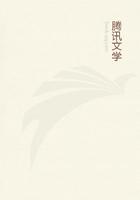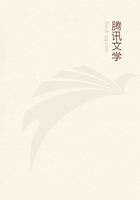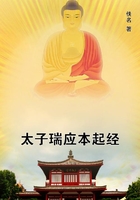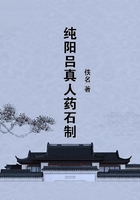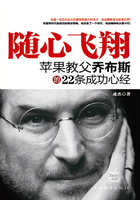You, then, who are in a wretched plight and gaping after applause and counting your auditors, do you intend to be useful to others? "To-day many more attended my discourse." "Yes, many; we suppose five hundred." "That is nothing; suppose that there were a thousand." "Dion never had so many hearers." "How could he?" "And they understand what is said beautifully." "What is fine, master, can move even a stone." See, these are the words of a philosopher. This is the disposition of a man who will do good to others; here is a man who has listened to discourses, who has read what is written about Socrates as Socratic, not as the compositions of Lysias and Isocrates. "I have often wondered by what arguments." Not so, but "by what argument": this is more exact than that. What, have you read the words at all in a different way from that in which you read little odes? For if you read them as you ought, you would not have been attending to such matters, but you would rather have been looking to these words: "Anytus and Meletus are able to kill me, but they cannot harm me": and "I am always of such a disposition as to pay regard to nothing of my own except to the reason which on inquiry seems to me the best." Hence who ever heard Socrates say, "I know something and I teach"; but he used to send different people to different teachers. Therefore they used to come to him and ask to be introduced to philosophy by him; and he would take them and recommend them. Not so; but as he accompanied them he would say, "Hear me to-day discoursing in the house of Quadratus." Why should I hear you? Do you wish to show me that you put words together cleverly? You put them together, man; and what good will it do you? "But only praise me." What do you mean by praising? "Say to me, "Admirable, wonderful." Well, I say so. But if that is praise whatever it is which philosophers mean by the name of good, what have I to praise in you? If it is good to speak well, teach me, and will praise you.
"What then? ought a man to listen to such things without pleasure?" I hope not. For my part I do not listen even to a lute-player without pleasure. Must I then for this reason stand and play the lute? Hear what Socrates says, "Nor would it be seemly for a man of my age, like a young man composing addresses, to appear before you." "Like a young man," he says. For in truth this small art is an elegant thing, to select words, and to put them together, and to come forward and gracefully to read them or to speak, and while he is reading to say, "There are not many who can do these things, I swear by all that you value."
Does a philosopher invite people to hear him? As the sun himself draws men to him, or as food does, does not the philosopher also draw to him those who will receive benefit? What physician invites a man to be treated by him? Indeed I now hear that even the physicians in Rome do invite patients, but when I lived there, the physicians were invited. "I invite you to come and hear that things are in a bad way for you, and that you are taking care of everything except that of which you ought to take care, and that you are ignorant of the good and the bad and are unfortunate and unhappy."
A fine kind of invitation: and yet if the words of the philosopher do not produce this effect on you, he is dead, and so is the speaker. Rufus was used to say: "If you have leisure to praise me, I am speaking to no purpose."
Accordingly he used to speak in such a way that every one of us who were sitting there supposed that some one had accused him before Rufus: he so touched on what was doing, he so placed before the eyes every man's faults.
The philosopher's school, ye men, is a surgery: you ought not to go out of it with pleasure, but with pain. For you are not in sound health when you enter: one has dislocated his shoulder, another has an abscess, a third a fistula, and a fourth a headache. Then do I sit and utter to you little thoughts and exclamations that you may praise me and go away, one with his shoulder in the same condition in which he entered, another with his head still aching, and a third with his fistula or his abscess just as they were? Is it for this then that young men shall quit home, and leave their parents and their friends and kinsmen and property, that they may say to you, "Wonderful!" when you are uttering your exclamations. Did Socrates do this, or Zeno, or Cleanthes?
What then? is there not the hortatory style? Who denies it? as there is the style of refutation, and the didactic style. Who, then, ever reckoned a fourth style with these, the style of display? What is the hortatory style?
To be able to show both to one person and to many the struggle in which they are engaged, and that they think more about anything than about what they really wish. For they wish the things which lead to happiness, but they look for them in the wrong place. In order that this may be done, a thousand seats must be placed and men must be invited to listen, and you must ascend the pulpit in a fine robe or cloak and describe the death of Achilles. Cease, I entreat you by the gods, to spoil good words and good acts as much as you can. Nothing can have more power in exhortation than when the speaker shows to the hearers that he has need of them. But tell me who when he hears you reading or discoursing is anxious about himself or turns to reflect on himself? or when he has gone out says, "The philosopher hit me well: I must no longer do these things." But does he not, even if you have a great reputation, say to some person, "He spoke finely about Xerxes"; and another says, "No, but about the battle of Thermopylae"? Is this listening to a philosopher?

